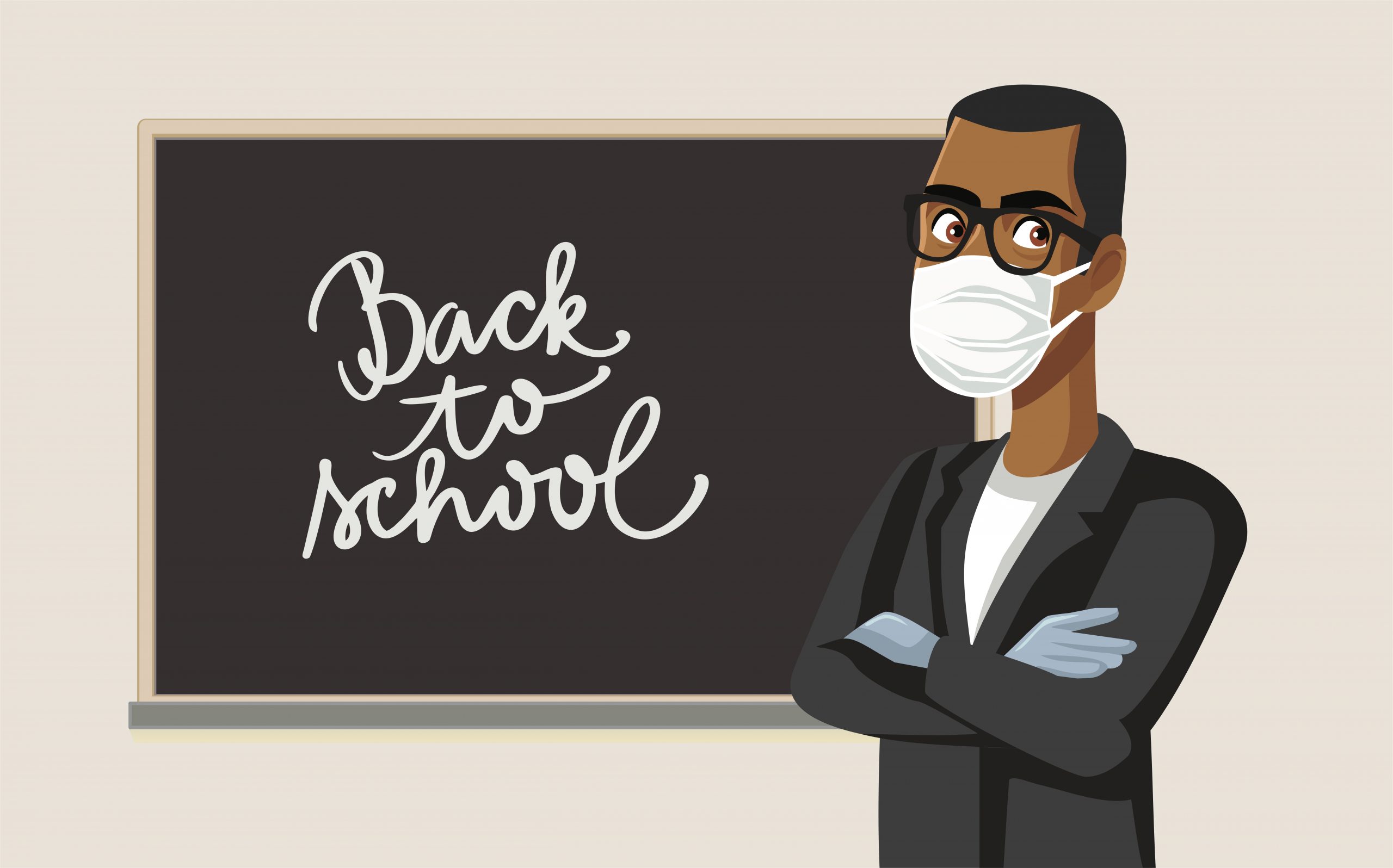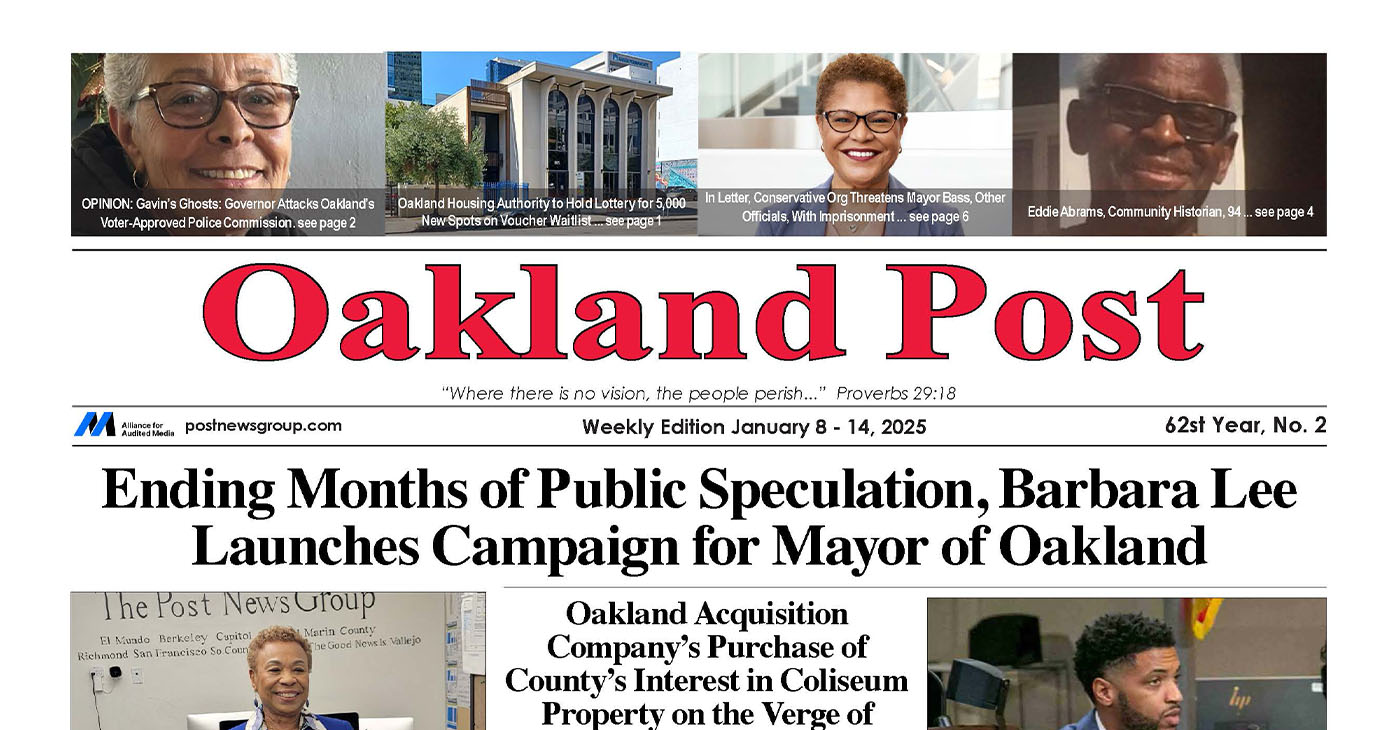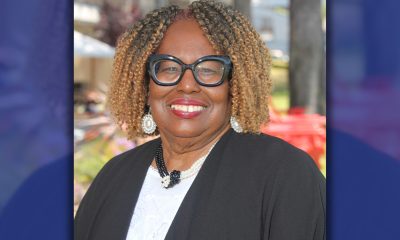Community
California Voters Give Schools, Teachers Top Grades in Year-End Survey
However, on most issues in the survey, Democrats and Republicans generally disagreed. One notable issue was whether schools should spend more time teaching about the causes and consequences of racism and inequality.

Despite perceptions of the public’s widespread unhappiness with the slow reopening of California’s schools last spring, most voters surveyed, including parents, gave the highest marks in a decade of polling to the state’s public schools in general and their schools in particular.
However, on most issues in the survey, Democrats and Republicans generally disagreed. One notable issue was whether schools should spend more time teaching about the causes and consequences of racism and inequality.
At the same time, they also expressed worry about the effects of the pandemic on children and said they would strongly support various measures to accelerate student learning, including hiring counselors and providing intensive tutoring and summer school.
The independent, nonpartisan research center PACE and the USC Rossier School of Education released their ninth annual poll on education on July 8. The survey firm Tulchin Research solicited views of 2,000 registered California voters representative of the state’s demographics and party affiliation, with an oversampling of 500 parents with children under 18 living at home. Surveys were conducted in English and Spanish.
Researchers chose May, with schools winding down after a partial return to in-person instruction, because it enabled participants to reflect on the year and look ahead, said Heather Hough, PACE’s executive director.
Given widespread news reports showing anger and mistrust toward schools, Hough said she expected more criticism. Instead, a record 38% of voters overall and 53% of parents gave A or B grades to schools statewide; 51% of voters and 61% of parents gave A or B to their local public schools.
One of the researchers characterized this as “grading on a curve,” Hough said, giving credit to schools for the efforts they made during a difficult year.
The disparity was wide among voters by party, however, with 29% of Republicans giving schools statewide an A or B and 41% giving a D or F, compared with 47% of Democrats giving an A or B and only 17% giving schools statewide a D or F. The rest gave schools a C.
The majority of voters and parents gave A or B to teachers and superintendents, and 69% of parents said they would encourage a young person to become a teacher, an increase from 60% from the last poll, which was taken pre-pandemic, in January 2020.
Voters were presented a list of the potential areas of concern because of the pandemic’s impact on students and asked to rate them 1 to 10, with 10 being “very important.” Voters overall cited students falling behind academically as the most pressing issue, with the impact on English learners and special education students a close second. Parents cited the impact on emotional and mental health as No. 1, which was third for all voters.
Voters’ experiences during the pandemic varied significantly by income, and, to an extent, by race and ethnicity. Confirming what other surveys have indicated, lower-income families were the hardest hit: for families earning under $35,000 per year, 37% said their income worsened and 14% said it improved during the pandemic; for families earning more than $150,000, it was the opposite: 30% said their income had improved and 17% said it worsened.
Asked to describe their children’s educational experience during the pandemic, 58% of families earning under $75,000 said it had gotten worse, compared with 48% of families earning more than $150,000; 39% of those earning more than $150,000 said it had gotten better, compared with 26% of families earning less than $35,000.
Divided on race and politics
California voters reflected the tensions nationally on issues of race and politics, though they downplayed the divisions locally: 78% said the state has become more divided politically, and 70% said the state has become more divided on matters of race. But slightly fewer than half said those political and racial tensions had increased locally.
Asked if the problem of discrimination and violence based on racial and ethnic differences has gotten worse, 69% said it had statewide while 48% said it had locally; 64% of Black voters said the problem has worsened, compared with 46% of non-Black voters.
Voters were given a dozen educational issues and were asked to rank their importance, from 1 to 10 (very important). The top issue was reducing gun violence in schools, although the rate of incidents is small nationally and in California, with 65% of Democrats and 37% of Republicans ranking it very important.
The next four issues, all closely ranked, were making college more affordable, improving special education services, reducing the teacher shortage and supporting struggling schools.
More Democrats than Republicans designated the issues to be very important. On improving education funding, for example, 43% of Democrats ranked it very important, compared with 25% of Republicans. The one exception was improving school discipline; a third of Republicans ranked it very important, compared with a quarter of Democrats.
Asked whether more or less time should be spent on “grade-appropriate” lessons on racism and inequality, 39% of Democrats backed giving the issues much more time compared with 10% of Republicans, while 37% of Republicans and 3% of Democrats said there should be much less time.
“Many Californians support steps to acknowledge and address persistent inequities, in the curriculum and otherwise, but stark partisan differences portend ongoing conflict in the pursuit of these goals,” the authors of the poll concluded. Along with Hough, they were Julie Marsh, a professor of education policy at USC Rossier School of Education; Jeannie Myung, director of policy research at PACE; David Plank, a senior fellow at PACE, and Morgan Polikoff, an associate professor of education at the USC Rossier School of Education.
On other questions:
69% of voters support requiring COVID-19 vaccinations for school-age children, once approved by the FDA and medical exemptions are allowed; 43% strongly favor the idea. Strongest in support were Democrats, high-income earners and Asian American voters. Least supporting were Republicans, low-income earners and Black voters, although in all groups, there was a majority support.
71% of parents and 59% of all voters favored making online learning from home an option for all students in California public schools, even after the pandemic ends.
58% of voters, but only 49% of parents favor the resumption of standardized testing, but 43% of parents want testing either eliminated (18%) or reduced, such as once in elementary school and once in high school. (In spring 2020, the tests for most students were canceled, and in spring 2021, they were optional for districts.)
Activism
Oakland Post: Week of January 8 – 14, 2025
The printed Weekly Edition of the Oakland Post: Week of January 8 – 14, 2025

To enlarge your view of this issue, use the slider, magnifying glass icon or full page icon in the lower right corner of the browser window.
#NNPA BlackPress
Supreme Court Decision Confirms Convicted Felon Will Assume Presidency
NNPA NEWSWIRE — In a 5-4 ruling, the court stated that Trump’s concerns could “be addressed in the ordinary course on appeal” and emphasized that the burden of sentencing was “relatively insubstantial” given that Trump will not face prison time. Chief Justice John Roberts and Justice Amy Coney Barrett joined the court’s three liberal justices in the majority, with four conservative justices dissenting.

By Stacy M. Brown, NNPA Newswire Senior National Correspondent
@StacyBrownMedia
The Supreme Court on Thursday rejected President-elect Donald Trump’s emergency request to block criminal proceedings in his New York hush money case, ensuring that a sentencing hearing will proceed as scheduled on Friday. The decision makes it official that, on January 20, for the first time in its history, the United States will inaugurate a convicted felon as its president.
In a 5-4 ruling, the court stated that Trump’s concerns could “be addressed in the ordinary course on appeal” and emphasized that the burden of sentencing was “relatively insubstantial” given that Trump will not face prison time. Chief Justice John Roberts and Justice Amy Coney Barrett joined the court’s three liberal justices in the majority, with four conservative justices dissenting.
Trump was convicted in May for falsifying business records related to a $130,000 payment to adult film star Stormy Daniels before the 2016 election. Manhattan District Attorney Alvin Bragg argued that the Supreme Court lacked jurisdiction to intervene in a state criminal case, particularly before all appeals in state courts were exhausted.
Trump’s legal team claimed the sentencing process would interfere with his transition to power and argued that evidence introduced during the trial included official actions protected under the Supreme Court’s prior ruling granting former presidents immunity for official conduct. Merchan, the New York judge who presided over the trial, ruled in December that the evidence presented was unrelated to Trump’s duties as president.
Prosecutors dismissed Trump’s objections, stating that the sentencing would take less than an hour and could be attended virtually. They said the public interest in proceeding to sentencing outweighed the President-elect’s claims of undue burden.
Justice Samuel Alito, one of the four dissenting justices, confirmed speaking to Trump by phone on Wednesday. Alito insisted the conversation did not involve the case, though the call drew criticism given his previous refusals to recuse himself from politically sensitive matters.
The sentencing hearing is set for Friday at 9:30 a.m. in Manhattan. As the nation moves closer to an unprecedented inauguration, questions about the implications of a convicted felon assuming the presidency remain.
“No one is above the law,” Bragg said.
Activism
Barbara Lee Launches Campaign for Mayor of Oakland
“At this critical moment, we must not be a city divided, but a community united,” she Lee. “If elected I will bring my hands-on leadership, new ideas and decades of experience in identifying billions in resources for our great city, so all residents and businesses are stronger and safer and our community has optimism and confidence in Oakland’s future.”

By Post Staff
Barbara Lee on Wednesday morning formally announced her candidacy for Mayor in Oakland’s April 15 special election.
“Time and time again, Oaklanders have faced our toughest obstacles by uniting to meet our challenges,” said Lee.
“At this critical moment, we must not be a city divided but a community united,” she said. “If elected, I will bring my hands-on leadership, new ideas, and decades of experience in identifying billions in resources for our great city so all residents and businesses are stronger and safer and our community has optimism and confidence in Oakland’s future.”
“As Mayor, I’ll address our homelessness crisis, prioritize comprehensive public safety and mental health services, and lead with fiscal responsibility to deliver the core City services residents and business owners deserve. Let’s do this – together.”
“I’ve never shied away from a challenge,” said Lee. “I’m always ready to fight for Oakland.”
Watch her campaign video here, which is online at BarbaraLee4Oakland.com
-

 Activism3 weeks ago
Activism3 weeks agoBooks for Ghana
-

 Arts and Culture4 weeks ago
Arts and Culture4 weeks agoPromise Marks Performs Songs of Etta James in One-Woman Show, “A Sunday Kind of Love” at the Black Repertory Theater in Berkeley
-

 Bay Area3 weeks ago
Bay Area3 weeks agoGlydways Breaking Ground on 14-Acre Demonstration Facility at Hilltop Mall
-

 Activism4 weeks ago
Activism4 weeks ago‘Donald Trump Is Not a God:’ Rep. Bennie Thompson Blasts Trump’s Call to Jail Him
-

 Activism3 weeks ago
Activism3 weeks agoLiving His Legacy: The Late Oscar Wright’s “Village” Vows to Inherit Activist’s Commitment to Education
-

 Arts and Culture3 weeks ago
Arts and Culture3 weeks agoIn ‘Affrilachia: Testimonies,’ Puts Blacks in Appalacia on the Map
-

 Alameda County3 weeks ago
Alameda County3 weeks agoAC Transit Holiday Bus Offering Free Rides Since 1963
-

 #NNPA BlackPress4 weeks ago
#NNPA BlackPress4 weeks agoCalifornia, Districts Try to Recruit and Retain Black Teachers; Advocates Say More Should Be Done

















































